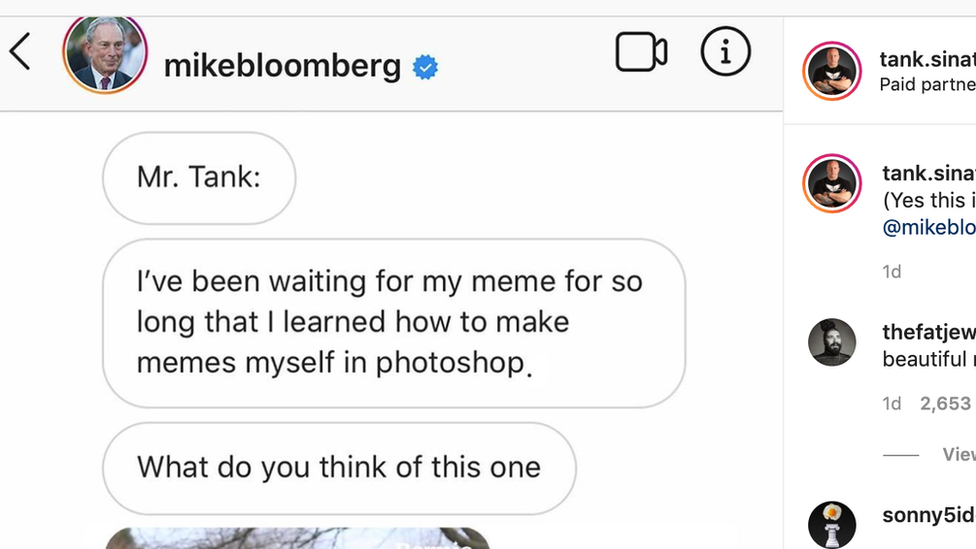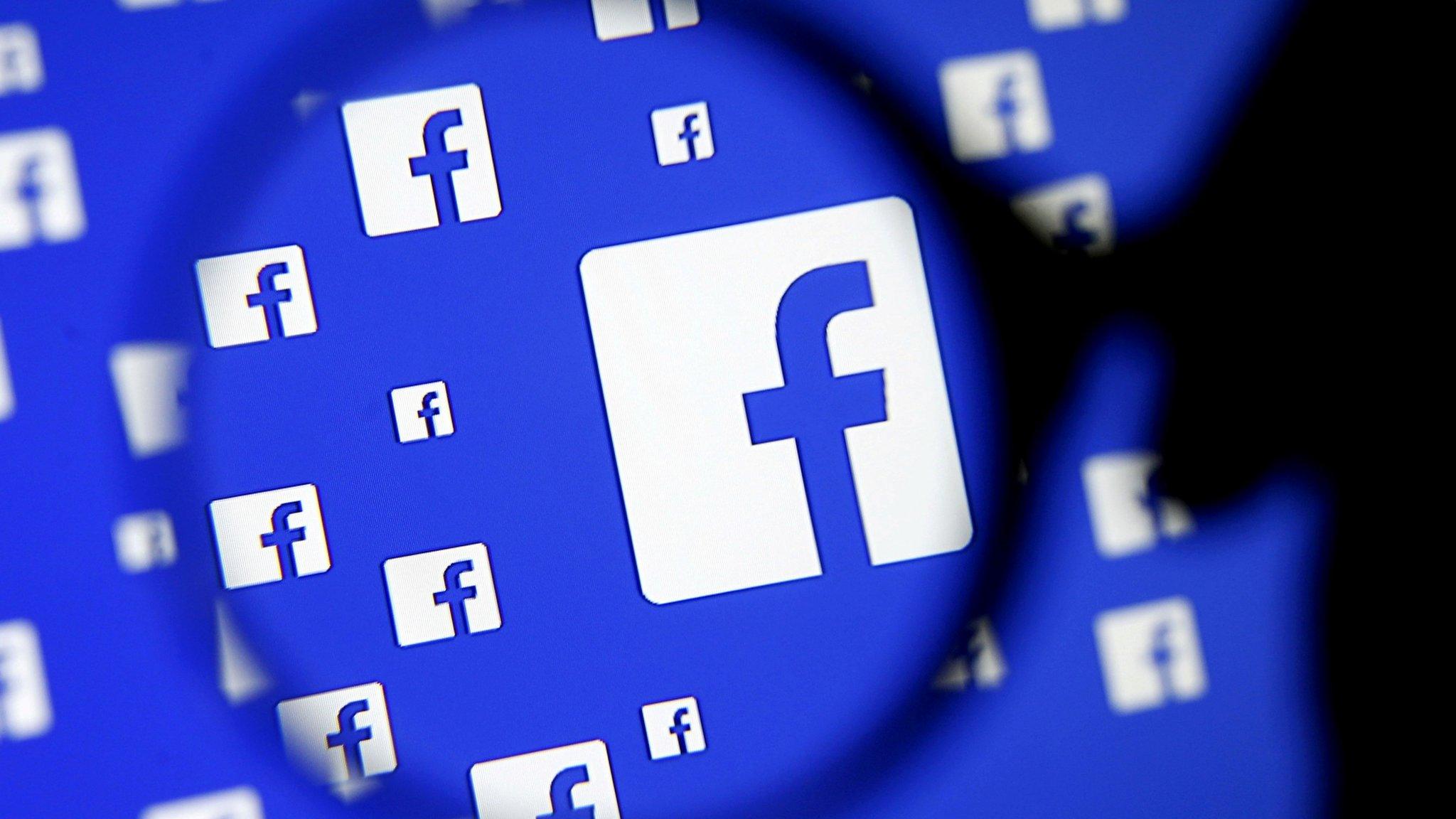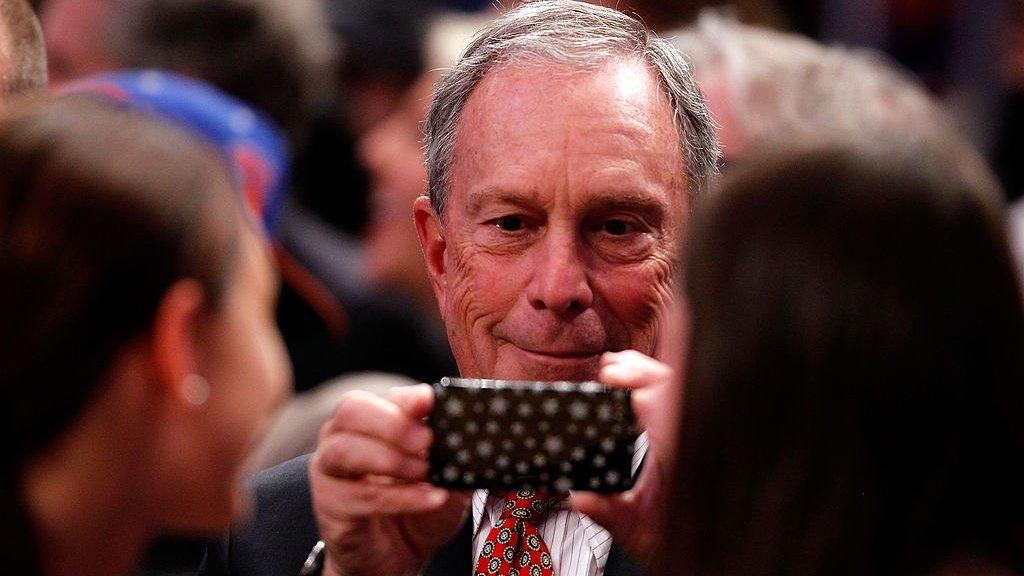Facebook say influencer memes are not political ads
- Published

Facebook will not include sponsored political posts by social media stars in its political ad library, the company has confirmed.
The company currently updates a public list of ads run by politicians, their campaigns and political parties.
But it has decided that sponsored content, posted by influencers and paid for by politicians, will not be included in its library.
Presidential hopeful Michael Bloomberg is one candidate to use the technique.
Earlier this week, it was revealed that Mr Bloomberg had been paying influencers to post memes about him on Instagram.
'Different from advertising'
When a politician pays to "boost" a post on their Facebook page, the post is added to a public ad library.
It is designed to offer more transparency and show what sort of messages politicians are paying to amplify.
Facebook requires influencers and social media stars to indicate when they have been paid to post something on Facebook and Instagram.
But these "organic" or "native" advertisements, written in the influencer's own voice, will not appear in the political ad library, even if a politician has paid for them.
Facebook told the BBC: "Branded content is different from advertising, but in either case, we believe it's important people know when they're seeing paid content on our platforms.
"We're allowing US-based political candidates to work with creators to run this content, provided the political candidates are authorised and the creators disclose any paid partnerships through our branded content tools."
The social media giant launched new policies for political advertising in the US in 2018 and globally the following year.
These rules require political ads to display who had paid for them. They place those ads in a publicly searchable database for seven years.
Bloomberg Memes
Earlier in the week, it was revealed that Democratic presidential candidate Mike Bloomberg has been paying social media influencers for posts in the hope of reaching younger voters.
The campaign for the former New York mayor hired influencers though the company Meme2020 to post images that would "make him look cool".
The new policy will require these types of posts on Facebook and Instagram to include a label that states that they were done in partnership with a political campaign.
Facebook's politics and free speech approach
Facebook has come under criticism for its policy towards political advertising. Posts by politicians are not always fact-checked as part of the company's free speech policy.
But under its new guidelines, posts by influencers will be fact-checked if they are in the voice of the poster and not the candidate.
For example, a post that said "I will vote for candidate X because they can fly" would be fact-checked.
A post that said "candidate X says 'vote for me because I can fly'" would not.
So far these new policies only apply in the US.
- Published31 October 2019

- Published13 February 2020
